PandemiDiarios 2020
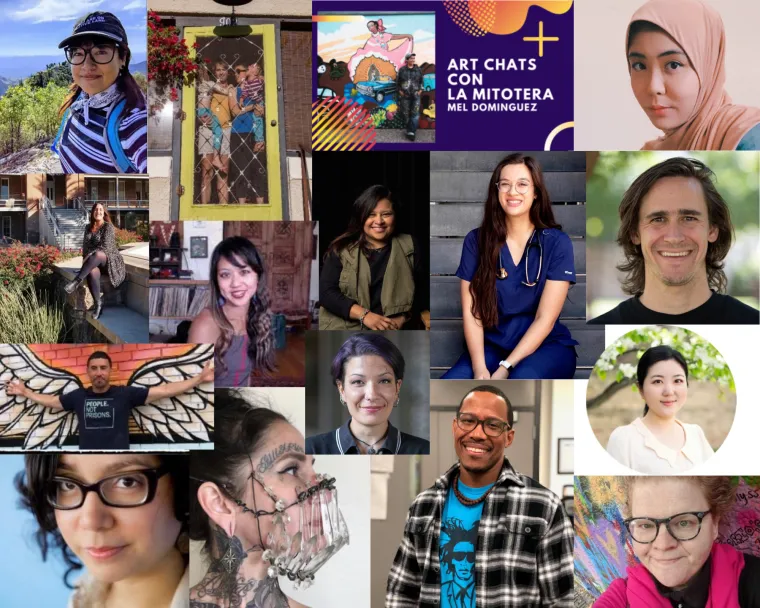
Shelter in Place Creative Projects
PandemiDiarios is a microgrant program to support students, academic professionals, and community-based artists and practitioners in producing creative works reflecting on the human experience of the current COVID-19 pandemic.
The term pandemidiarios comes from blending “pandemic” and “diarios” (diaries). Diarios are where the stories of ourselves are written. They are where we express our frustrations, hopes, and visions for the future. For some it is a therapeutic process, and for others a way to capture the moment or keep a record of day to day life.
The first round of PandemiDiarios microgrant projects, produced over the summer of 2020, reflected and interpreted the human experience of the COVID-19 pandemic from underrepresented perspectives. Descriptions of previous PandemiDiarios projects can be found below, and the digital archive of work can be viewed at the PandemiDiarios digital archive.
In June 2020, sixteen creators and creative teams received microgrants through this program. Learn more about these innovative artists and projects below, and follow #pandemidiarios on social media @confluencenter for project updates.
In partnership with University of Arizona Libraries’ Special Collections, we have the unique opportunity to archive digital versions of all creative work supported by this program in the Family and Community Archives. This “digital museum” will be freely available to the public in perpetuity.
Congratulations 2020 PandemiDiarios awardees:
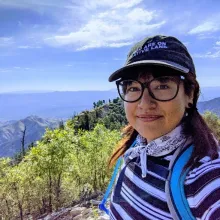
Blu Au
This digital photo-audio poetry project is the creative vision of a chicanx indigiqueer, non-binary femme, and healing arts practitioner. Au is a first generation graduate student in Mexican American Studies at UArizona. Their current research explores the creative, non-linear, and liminal ways ancestral knowledge is acknowledged and accessed as a resource to heal colonial wounds and historical trauma.
This project aims to creatively express intuitive, non-linear reflections of experiences related to the COVID-19 pandemic through poetry. These photos and poems center the artist’s experiences as a queer Chicanx Indigenous person of color from a historically low socioeconomic class, who is care-taking her mother; while reimagining decolonial futures through rewriting medicinal healing stories and reconnecting to inherent Indigenous knowledge for the holistic healing of future generations.
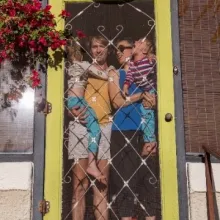
Photo By Andrew Brown
For the last five years, Arizona Public Media producer Andrew Brown has offered a unique view of Tucson residents through his street photography project, Tucson Street Portraits. These inspiring, funny, honest and heartfelt photo-portraits offer equal parts art, journalism, documentary and social media experimentation.
Quarantine Portraits continues in this same spirit within the new context of COVID-19. The project aims to illuminate how Tucson households from different geographic and cultural communities are experiencing sheltering in place.
Follow Tucsonans on the shared stay-home journey @tucsonstreet on Instagram and Twitter, or @tucsonstreetportraits on Facebook.
Quarantine Portraits · Family & Community Archives · Special Collections Online Exhibits
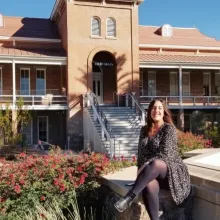
Daniela Torres Cirina
For some, life during the pandemic has brought financial stressors and limitations on grocery access. Food pantries offer food assistance, but can feel daunting or depressing to new users. PantryMeals aims to share how, with a bit of creativity, staple ingredients from the UA Campus Pantry can be turned into comforting, filling, and delicious meals. Two UArizona international grad student roommates, from Spain and India, respectively, who describe themselves as “passionate about food and flavors,” will share a weekly Instagram post with photos and recipes for their pantry-made meals. In this time of uncertainty and anxiety, this project aims to break down stigmas related to receiving food assistance while nurturing joy through food.
Put on your apron and get cooking with @pantrymeals.uaz on Instagram.
Pantry Meals · Family & Community Archives · Special Collections Online Exhibits
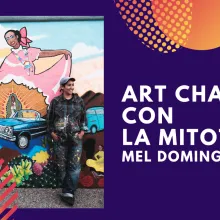
Mel "Melo" Dominguez
Mel “Melo” Dominguez is an artist and muralist whose work is a direct expression of their Chicanx culture, political issues, social issues and environmental issues. In 2018, Dominguez opened Galeria Mitotera in the City of South Tucson as a community arts space that focuses on uplifting local artists of color, and holding a safe space for all. In 2020, the temporary closure of the gallery mandated a new, creative approach. Art Chats con La Mitotera offers 30-minute live interviews with local artists three times per week on Instagram Live. These interviews allow artists to share what they’ve been creating during the pandemic, what has been inspiring them, and their current struggles.
Live interview videos are edited and available after the interview date on YouTube and Facebook.
Art Chats con La Mitotera · Family & Community Archives · Special Collections Online Exhibits
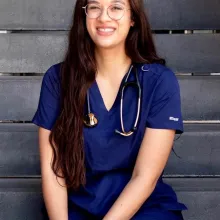
Monique Garcia
Monique Garcia is a first generation American, UArizona nursing student, and co-founder of the contemporary dance company Dust Dance Collective (DDC), which aims to increase the access to dance arts through producing free dance video media. Videos are created locally with dancers of all levels and abilities, aged 17+. During the pandemic, DDC members continue to meet virtually once a week to check-in and facilitate movement.
The dance video project Reconnecting… reinvents a culmination of DDC's older choreography from their previous original dance videos, within a Zoom video call. Each dancer will film themselves completing choreography and structured improv in their bedrooms, living rooms, kitchens, and backyards. The movement explores confinement through interaction with these home spaces, as well as the container of the Zoom square.
Reconnecting… · Family & Community Archives · Special Collections Online Exhibits
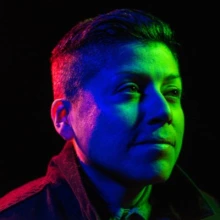
As months of sheltering in place continue, memory and archive take on new roles. Essayist, arts writer, and poet Raquel Gutiérrez is gathering these of histories, memories, and current experiences of Latinx migrant communities in Tucson, with special focus on queer Latinx, to create a poem centering their contributions to the varying cultures that animate Tucson. Weaving together poetry, personal interviews and biographical stories, the author aims to explore personal and political contexts, from the historical intersection of the Mexican Revolution and the Spanish flu, to the current intersection of health and political effects of the COVID-19 pandemic on the many Latinx “essential workers,” creatives, and culture-makers.
Follow this author @raquefella on Instagram and Twitter, or at raquelgutierrez.net
Dancing Alone, Together · Family & Community Archives · Special Collections Online Exhibits
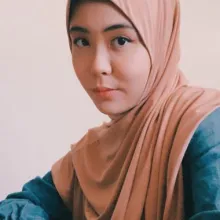
Yurika Isoe believes: “We have the solutions that we need, we have the materials that we need.” As a community artist in the SUBSPACE collective, actively working on circular solutions to textile waste, Isoe saw the sudden demand for facemasks through a unique lens. As the textile industry is infamous for environmental damage and human labor violations, how could the manufacturing of facemasks model the ethics of sustainability, mutual aid, and resilience? What would a circular economy that is regenerative and adaptive to present needs look like?
In response to these questions, Isoe is working with individual members of her community to reimagine existing garments that tell stories. A tie sitting untouched during months working from home, an heirloom garment, or a dress from a family event, as examples, may be collected while sharing stories. Cloth from these garments will be transformed into a set of personally unique, functional masks for the individual.
The final project, a documentary video, will detail the process of these re-enchanted garments, weaving together the history and memories of the old garments with the wearer’s present reality.
Follow the artist on Instagram @yurika.xlsx and at eurekatextiles.com
Re-enchanted Garments · Family & Community Archives · Special Collections Online Exhibits
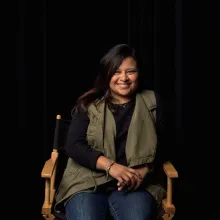
Pita Juarez
La Morena is a documentary film revolving around Lucinda Hinojos, an Arizona Chicana Native artist, also known as La Morena. Hinojos is an immigrants’ rights activist in Phoenix, AZ, whose murals focus on the power of community, family, and healing. This short film highlights one of her murals in downtown Phoenix, near the Capitol building where thousands have marched in protest of anti-immigrant laws. The mural depicts the separation of families, border fights and the effects of xenophobia on children.
Although this project came to a sudden, uncertain halt with the arrival of COVID-19, the filmmakers are now continuing creatively through distanced, outdoor filming and virtual collaboration. Juarez states, “Art heals, it brings awareness and brings community together in solidarity. More than ever, we need messages like this and to be creative about how we tell our stories even with limited resources. COVID-19 affects all the topics from our short film- immigrants here in the U.S, immigrants detained right now, and artists across the country who are painting and creating with social justice issues in mind. With La Morena- you can see her pain, her love, and inspiration through the guidance of her ancestors who energize her art.”
Follow the filmmaker @pitajs on Instagram, @pitaJ on Twitter.
La Morena · Family & Community Archives · Special Collections Online Exhibits
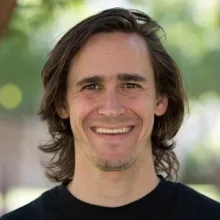
The arrival of COVID-19 brought an added level of risk to individuals over the age of 65. Even pre-pandemic, however, elders in the United States face a multitude of challenges, especially those without reliable income or with disabilities. Stephen Paur, UArizona graduate student of English, wants to bring elders to the forefront of our national conversation, by first engaging in personal conversations one-on-one.
Paur will be talking with residents of the Tucson House, a public housing facility for individuals aged 62 or older or living with disabilities. These “status update” phone conversations allow for residents to share casual, mundane stories about their days as well as deeper reflections and current struggles. Conversations are recorded and will be incorporated into a short film, allowing the viewer to hear directly from interviewees.
Paur states: “The elderly and disabled might be sidelined, in part, because capitalist imperatives have deemed them ‘unproductive’ members of the economy. With this project, I hope to add my voice to the chorus of opposition intent on energetically countering this kind of cynical, capitalist logic of disposability, and offering, in its place, an optimistic ethic of care and a logic of equality and accountability.”
Follow Paur’s work on his website.
Status Update · Family & Community Archives · Special Collections Online Exhibits
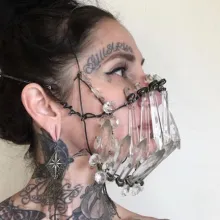
"30/31"
Photo by Racheal Rios
Artists Racheal Rios and Rebecca Zapien describe their ongoing collaboration, RR-Y-RZ, as their “way to use art in late stage capitalism to redistribute money to organizations and groups doing necessary work on stolen land.” As of January, they have donated approximately $3,000 through the sale of work.
Masks of May includes 31 original sculptural masks representing each day in May. Materials span from re-purposed household objects to desert fruit, blooms and natural material from isolated hikes and walks.
The project concludes with designing an original bandana, to be produced for sale under RR-Y-RZ. Bandanas have long been used by farmworkers, construction workers, and landscapers to protect themselves from the environment in which they work in. During the pandemic, masks and bandanas have become a way to engage in limited ways with the outside world, as they have also become highly politicized. The artists of RR-Y-RZ describe the practice of wearing masks for the same reason they are driven to make art: “to care for others.”
Masks of May · Family & Community Archives · Special Collections Online Exhibits
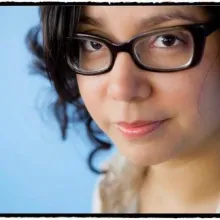
Xochilt Sequeira
Photo by Daniel Mordzinski
Xochilt Sequeira is a poet and author of Quien me espera no existe (Nicaraguan Writers Center, 2006). In this project, Sequeira weaves together photographs, free verse, diary entries, and personal notes. It meditates on two recurring topics: the desert and the disease. In this period of isolation and introspection, the Sonoran desert offers the dichotomy of its harshness, reminding of disease and death, alongside its enduring resilience.
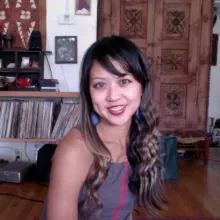
Serena Tang
Serena Tang is an interdisciplinary visual and performance artist who infuses their work with their passion for social justice issues, as well as a founding member of acrobatic performance group Flight School Acrobatics. Recently, Tang was faced with a situation many of us fear in the COVID-19 pandemic. Her mother, ill in the hospital and unable to communicate with hospital staff, was prohibited from seeing other family members due to risk of transmission. The family’s sense of hopelessness, which transitioned into creativity and resilience, from this experience inspired the concept of this project- two painted scrolls, exploring the timeless and timely methods of caring for and connecting with those who are ill and/or incarcerated.
Follow the artist at on their website or on Instagram.
Care in the Time of Corona · Family & Community Archives · Special Collections Online Exhibits
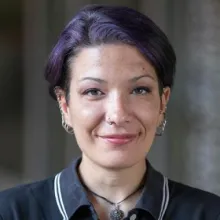
Lara Tarantini is a UArizona international graduate student in the School of Geography and Development, currently sheltering in Tucson, over 6,000 miles from her home and family in Northern Italy. Like many of us experiencing our communities through screens, Tarantini describes watching an endless stream of videos; of Italians singing from their balconies, military trucks transporting coffins, and the Italian healthcare system being stressed to its limit. She reflects, “Never have I felt such a deep connection with my country while at the same time being so distant and afraid.” Longing for connection to home, Tarantini began making pasta.
In this project, the artist endeavors to make tagliatelle- a traditional egg noodle which must be rolled “as thin as silk” -as good as her mother’s. Along with the meal, she will create an illustrated, bilingual (English/Italian) recipe, intertwined with the narrative of both the role that this food plays in defining the identity of the Emilia-Romagna region, and in forging connection to family.
As Thin As Silk: Homemade Pasta and the Taste of Home · Family & Community Archives
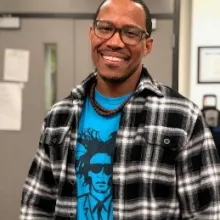
Cozine Welch
Comparisons have been drawn between the experience of Coronavirus lockdowns and being in prison. Living on Loss of Privilege: What We Learned in Prison is a video series initiated by formerly incarcerated artists Patrick Bates and Cozine Welch, reflecting on this comparison. This series features the stories of formerly incarcerated people who share the lessons they have learned in prison that can now help us all adjust to life during the pandemic. In the videographers’ own words: “As the violent crisis of oppression and control in the United States reaches the point of revolution in response to the murder of George Floyd, now more than ever is the time to elevate the voices of those who have been most impacted by purposeful systemic oppression in our society. We hope that these videos offer a sense of grounding, wisdom and hope as we all look forward to the construction of a truly just world.”
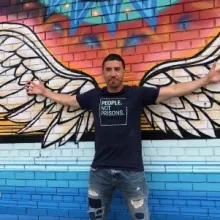
Patrick Bates
Check out the first episode on the “Living on LOP” website, and follow this project @prisonarts on Facebook and @UmichCarceral on Twitter.
Living on L.O.P. · Family & Community Archives · Special Collections Online Exhibits
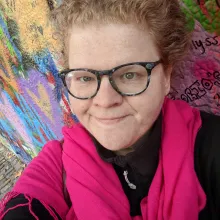
Gretchen Wirges
Gretchen Wirges is a Tucson-based artist, actor, director, and playwright. She is also an alcoholic/addict in recovery. At the age of 12, Wirges taught herself to quilt, learning to pay attention to precision, color theory, and construction to create a timeless, comforting gift for another. In this project, these long-practiced quilting skills are put to use in developing a multimedia quilt addressing the current realities of addicts in recovery during COVID-19.
Twelve-step alcoholic recovery programs developed in the 1930s have changed little in 85 years. However, in 2020, the inability to meet safely in groups mandated new formats for recovery programs. Although the swift transition to virtual meetings has made these programs more accessible for some, recovering addicts are also faced with increased challenges, especially related to loneliness and isolation.
The final project is a video documenting the quilt-making process, interspersed with the artists’ own words. According to Wirges, this project explores, “my own addictions, my own recovery needs, my own loneliness and ability to find the path through the isolation of this pandemic while maintaining my sobriety.”
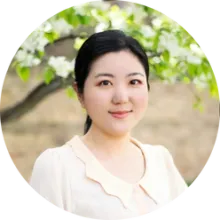
Jinhui Wu
Sutra copying originated in ancient China, and is now both a well-known Buddhist practice and a special method of Asian calligraphy. This practice is considered to be a merit for the practitioners in Buddhism, as well as believed to generate blessings to the public. During the COVID-19 pandemic crisis, the most popular mantra among Buddhists is the Medicine Buddha Mantra, which holds power for healing physical illnesses and purification of negative karma.
Wu’s project is a calligraphy painting of the Medicine Buddha Mantra in Chinese. It is an artistic, cultural and spiritual representation of hope during the current crisis.
Follow this artist on Her website.

